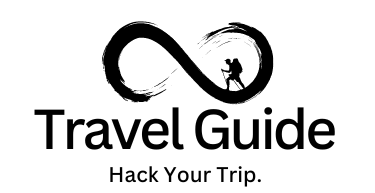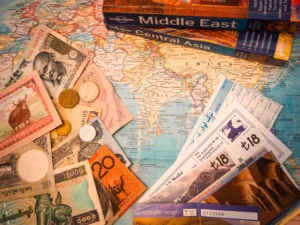Traveling on a budget may seem difficult at first, but with careful preparation and a little ingenuity, it is entirely possible to have a great vacation without breaking your budget. Here are some detailed instructions to help you organize a great and affordable trip.
1. Choose a Reasonably Priced Location
Choosing a destination that won’t put a strain on your money is the first step to organizing an affordable trip. Find a location with good value for money and a lower cost of living. Traveling on a budget is possible in parts of Southeast Asia, Eastern Europe, and South America. Consider off-the-beaten-path and off-the-beaten-path locations, as they often offer unique experiences at a lower cost.
2. Non-seasonal Travel
By planning your vacation out of season you can save a lot of money on activities, accommodation, and flights. Major tourist destinations are often less busy at certain times, allowing you to experience attractions without waiting in lines or paying high fees. Plan your route based on the applicable low season for your chosen location.
3. Be Flexible with Your Dates and Destinations
Flexibility is crucial when looking for the best discounts. Use flight comparison apps and websites to keep an eye on costs and determine the best travel dates. Being flexible with your travel dates can often reduce accommodation and flight costs. Consider other airports and nearby cities where prices may be lower.
4. Book Flights and Accommodation in Advance
The best deals are usually obtained by booking flights and accommodation in advance, but occasionally there are last-minute deals. To find out about price drops and exclusive offers, sign up for fare alerts from airlines and travel sites. Use an online booking service with free cancellation for your stay so you can get early discounts and adjust your plans if necessary.
5. Use Budget Airlines and Public Transportation
Low-cost airlines are a great way to reduce your travel costs. But make sure you read the fine print and take into account any additional costs related to luggage and seat preferences. When you arrive at your destination, take public transportation instead of renting a car or taxi. Many cities make it easy to get around and you don’t have to spend a lot of money as they offer reasonably priced bus, tram, and metro day passes.
6. Choose Affordable Accommodation
Although accommodation can be one of the more expensive aspects of traveling, there are many affordable options. If you prefer to stay in shared dorms, hostels, guesthouses, and budget hotels are all great options to keep costs down. Websites like Couchsurfing and Airbnb offer unique and affordable housing options. If you are traveling with friends or family, renting an apartment or house can be cheaper than booking many hotel rooms.
7. Taste the Local Cuisine
Eating out can easily drain your bank account, especially in popular destinations. Save money by eating where the locals do. You can find delicious food at family-run eateries, street food vendors, and local markets for much lower prices than establishments that cater mainly to tourists. If you have access to a kitchen, consider preparing some meals with fresh, locally grown ingredients. This allows you to experience the local lifestyle and save money at the same time.
8. Take Advantage of Free and Cheap Events
Many locations offer a range of free or cheap excursions that can enrich your trip without breaking the bank. Museums, parks, and historic sites often offer discounted or free admission days. Walking, hiking and visiting local communities are all great ways to fully immerse yourself in the local culture without spending a lot of money. To make the most of your time, find out about free events, festivals, and attractions nearby before you travel.
9. Save on Souvenirs and Shopping
While it’s tempting to buy souvenirs for friends and family, shopping can easily lead to unnecessary expenses. Instead of going overboard on expensive trinkets, opt for small, sentimental souvenirs that perfectly reflect your trip. Local markets often offer more affordable and unique crafts. Avoid the tourist traps and look for authentic, locally produced goods.
10. Create and Monitor a Budget
Before you go, create a comprehensive budget that outlines all the expenses you expect to incur during your vacation, including flights, accommodations, meals, activities, and transportation. Use a budgeting app to track your expenses in real-time and make necessary adjustments. By keeping a close eye on your account, you can avoid overspending and ensure you have enough cash for the entire vacation.
Conclsuion
Budget travel planning doesn’t have to mean sacrificing trip quality. By choosing the right location, spreading your trip, and adapting to your schedule, you can maximize your trip without breaking your budget. Stretch your budget with cheap flights, affordable local transportation, and affordable accommodation options. Take advantage of free activities, local eateries, and smart shopping to make your trip even more enjoyable. To save even more, track your expenses and take advantage of travel benefits. If you plan and use a little imagination, you may be able to create an affordable and meaningful trip that will leave you with priceless memories and perhaps earn you extra money for your next trip.
FAQs
1. How do I book cheap travel flights?
Use the travel comparison tool and activate alerts about reduced fares to find cheap flights. Be flexible when choosing travel dates and consider taking weekday flights. Plus, you can save money by booking in advance and taking advantage of cheap flights. Also, check nearby airports, prices may be cheaper.
2. Which accommodation options are the most affordable for tourists?
Travelers can save money by booking accommodation through sites like Airbnb and Couchsurfing or by staying in hotels, guesthouses, or budget hotels. Renting a house or apartment can be affordable for groups. Look for properties with free cancellation so you can be flexible with your schedule.
3. How can we reduce travel-related food costs?
Eat like a local to reduce food costs. Choose from community markets, small family restaurants, and street food. If you have access to a kitchen, consider preparing some meals. Avoid dining in tourist spots, as these places often charge higher prices.
4. What are some cheap or free things to do while traveling?
Many locations offer free or low-cost activities, such as visiting museums on free admission days, visiting parks and historic sites, hiking, and attending local festivals. Plan for free activities and attractions to make the most of your travel budget.
5. How do you avoid expensive exchange rates?
Avoid currency exchanges at airports as they charge higher fees. To get better exchange rates, use ATMs in the countries you visit, and consider a travel-friendly credit card with little or no international transaction fees. Before you travel, find out which currency exchange services are the best.




